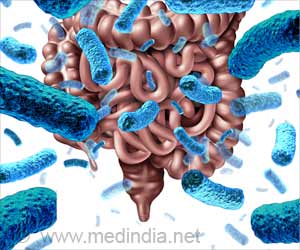This also improved the insulin sensitivity that uses of body glucose more effectively, reducing the blood sugar.
‘Oral delivery of fecal transplantation is effective in patients with obesity-related metabolic syndrome.’
“These patients were on the best-known medications (for metabolic syndrome) and we could improve them further, which shows us there is an avenue for improvement by targeting these different pathways in the microbiome”, said principal investigator Karen Madsen, professor of medicine in the Faculty of Medicine & Dentistry and director of the Centre of Excellence for Gastrointestinal Inflammation and Immunity Research.
Sixty-one patients with a body mass index of 40 or higher participated in this trial had metabolic syndrome, a condition that includes insulin resistance, high blood glucose, high blood pressure, and other complications leading to diabetes.
People with various diseases are known to have altered microbial contents so replacing unhealthy bacteria with healthy bacteria can lead to improved health.
Fecal transplants containing microbes from healthy stool donors, are used extensively for treating Clostridium difficile, or C. difficile, bacterial infections, can also be used in treating other illnesses such as inflammatory bowel disease, mental health and metabolic disorders.
“We know that the gut microbiome affects all of these processes–inflammation, metabolism, immune function,” said Madsen, who is a member of the Women and Children’s Health Research Institute and is one of the University of Alberta leads for the national Microbiome Research Core (IMPACTT).
This is the first study to show that oral delivery of fecal transplantation is effective in patients with obesity-related metabolic syndrome published in Nature Medicine.
The fecal microbial transplants used in this study were taken from four lean, healthy donors, and the capsules have no taste or odor.
The fiber supplements are given following transplant as our bodies do not naturally produce the enzymes needed to break down fiber. The team experimented with fermentable fibre (the kind found in beans, which produce gas) and non-fermentable fiber (essentially cellulose, found in whole grains).
The next step in the research will be to a longer study with more participants to know how the transplant/fiber combination works and monitors for changes in medication requirements, weight loss and other indicators. If results continue to show benefit, the pills can be available as a potential therapy within five years.
Apart from supplements we should also support the health of our gut microbiome by eating fewer processed foods and more foods containing fiber, such as whole grains, fruits and vegetables.
Source: Medindia



